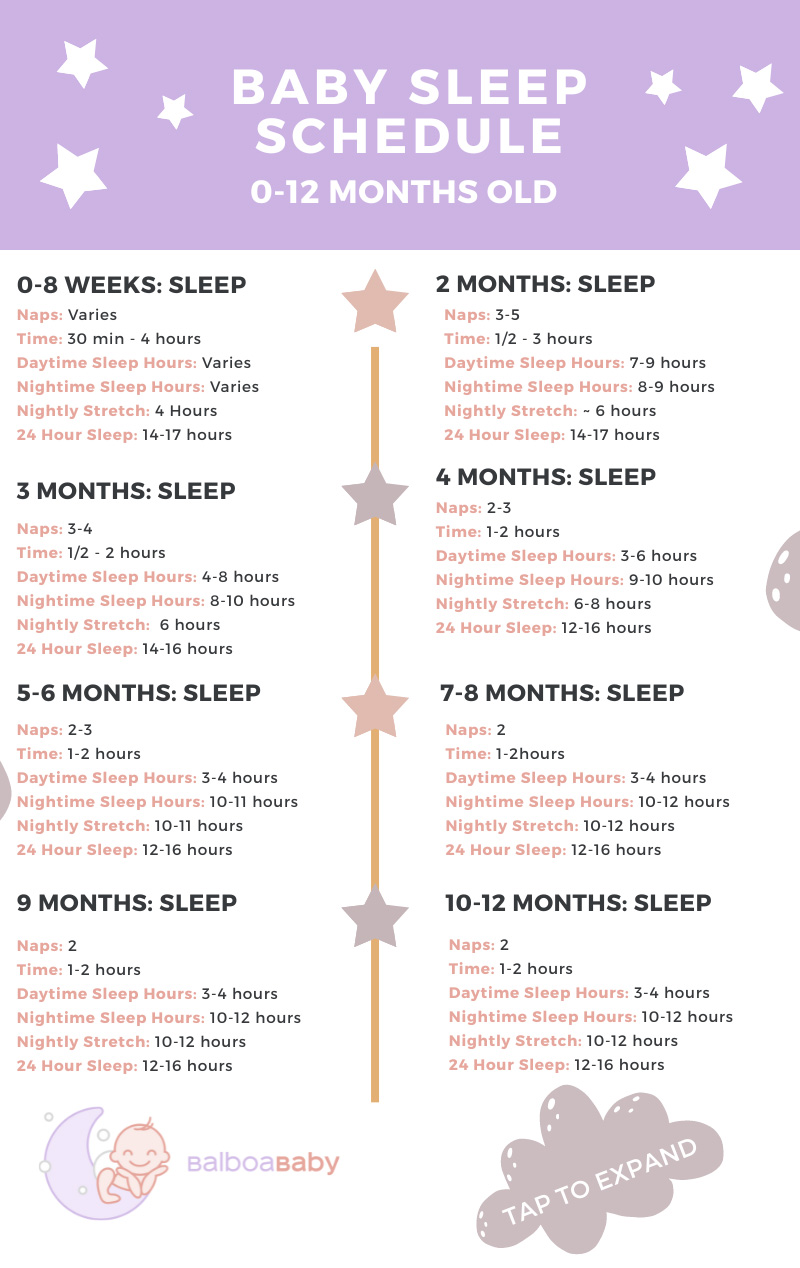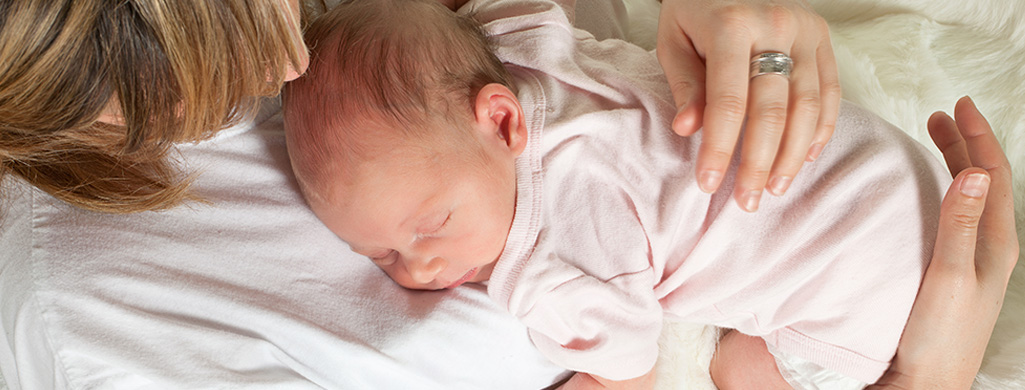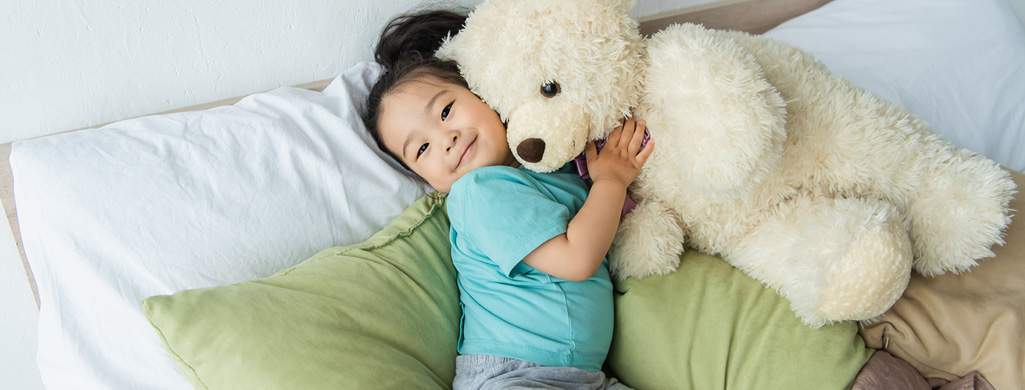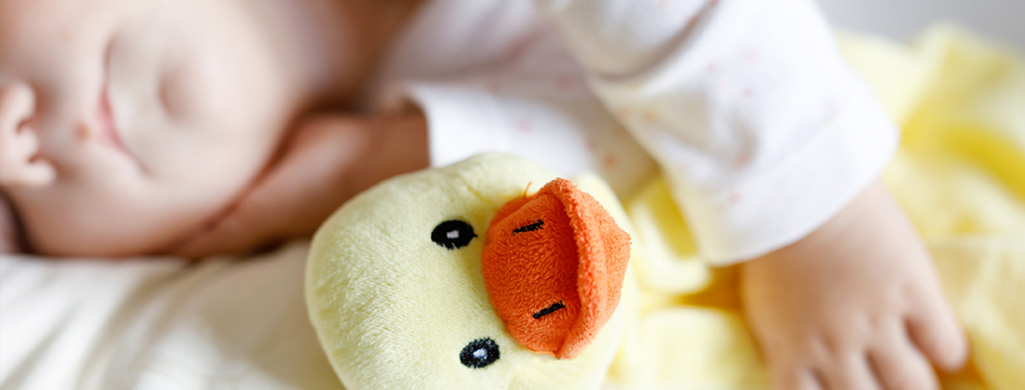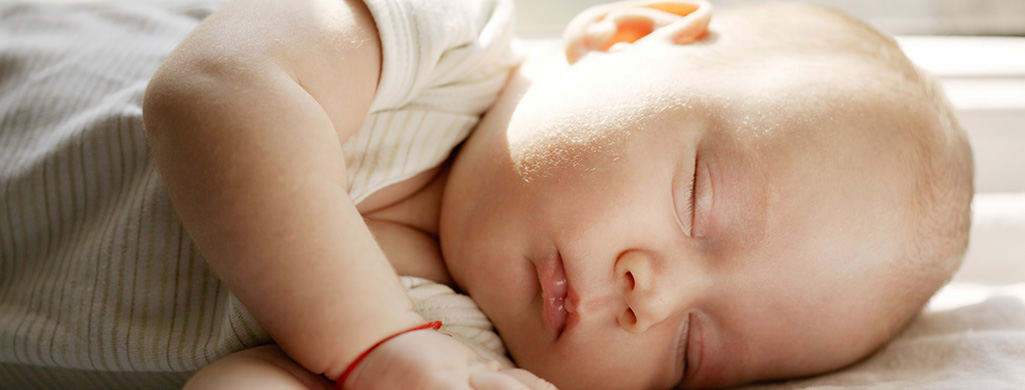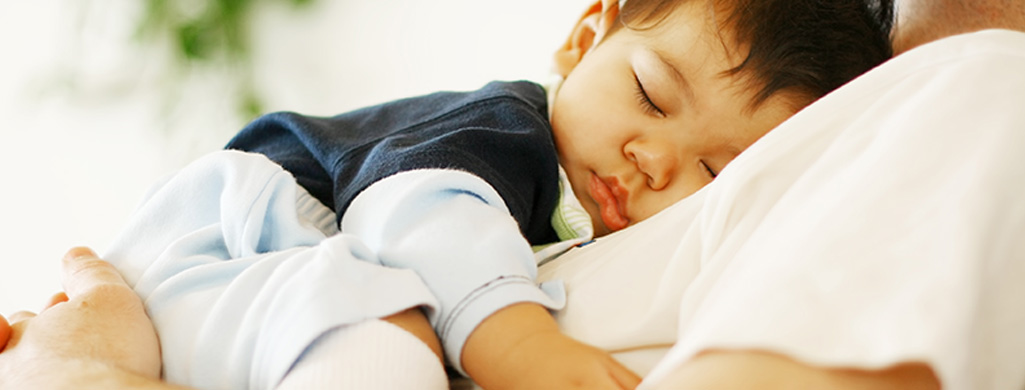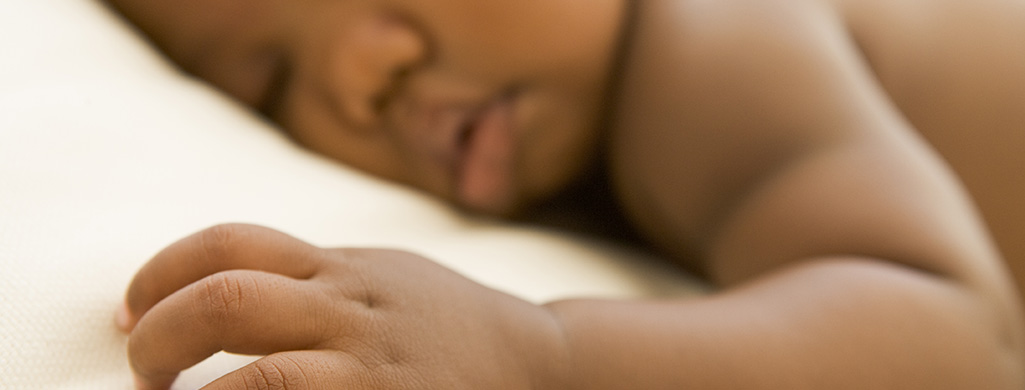A good sleep plan benefits you and your newborn, so you should create it as soon as possible. Establishing your baby’s sleep schedule provides countless rewards in terms of lifestyle. You’ll enjoy those benefits for years. Here are the most effective ways to create a sleep program for your infant.
Medically Reviewed By:
Guidelines at a Glance
- Rely on soothing activities right before bedtime: lullabies, baths, swaddling, etc.;
- Prepare the nursery or the baby’s sleeping environment: check the room’s temperature, put some white noise on, and adjust the light;
- Find out your baby’s sleep cycle without making them too exhausted by overstimulation during daytime play;
- During the daytime, take your baby out for walks, play with them, and ensure they respond to your smiles and words by being alert. Then, when nighttime comes, close the curtains, and dim the lights, making your entire house a calm and quiet environment.
5 Steps to Create a Sleep Schedule for Your Baby
Implementing your baby’s sleeping schedule within everyday life might not be easy, but it’s worth it. You’ll see how calm your infant will become and how restful his sleep will be. You should try specific methods, like cuddling, storytelling, bathing and massaging combo, and singing lullabies.
Babies can’t tell the difference between 5 a.m. and 5 p.m. So, it’s your job to help them sync their internal clock with their surroundings.
Feeding Time
Feeding your infant before bedtime is essential for his sleep quality. Doing that every night will help your newborn associate feeding with naps and sleep. Don’t be surprised if your little one falls asleep in your arms while you’re breastfeeding. After your baby’s tummy is full, you can safely place him in the crib.
Still, you should have at least 15 minutes before the feeding and sleeping phases. Otherwise, your little one will become confused and link those two actions.
Soothing Baths
You should give your baby a soothing bath one hour before bedtime, followed by a gentle massage. These two initiatives will indeed trigger his sleep. They regulate your infant’s body temperature.
Warm and relaxing baths improve blood circulation and cool off everyone’s internal core. So, yes, taking a shower or a bath before sleep benefits all of us, not just babies.
Singing Lullabies
Parents would sing baby lullabies from ancient times. These songs have gentle and melodic lyrics that lead to calming effects. Regardless of the language they’re sung in, Lullabies’ rhythms are compelling and trigger your child’s sleep.
Reading a storybook in a low voice could have similar results and contribute to your baby’s brain development.
Becoming Aware of Sleepy Signs
If babies show one or several of the following signs, they might be sleepy:
- Fussing
- Rubbing their eyes
- Not paying attention to their parents
- Yawning a lot
- Crying
Teaching Your Baby Self-Soothing Techniques
Gradually but steadily, you should teach your baby effective methods to self-soothe. To achieve that, you must avoid rocking your infant to sleep if you want him to learn to fall asleep on his own. Once babies are two months or older, parents should avoid waking them up during the night.
They’ll let you know if they’re hungry or need their diapers changed.
Here are some great self-soothing guidelines:
- Put your infant to sleep at the same time every night;
- Use white noise in the nursery;
- Place your baby in the crib as soon as he becomes drowsy;
- Once your little one grows, before becoming a toddler, you should give him a separate sleeping space;
- Allow your infant to fall asleep while holding a soft toy or a blanket – if the baby is old enough so that these items don’t represent choking hazards anymore.
It would be best if you remained consistent in your efforts no matter what method you try.
Baby and toddler sleep schedule by age
- 2-monnth-old sleep schedule
- 3-month-old sleep schedule
- 4-month-old sleep schedule
- 5-month-old sleep schedule
- 6-month-old sleep schedule
- 7-month-old-sleep-schedule
- 8-month-old sleep schedule
- 9-month-old sleep schedule
- 10-month-old sleep schedule
- 11-month-old sleep schedule
- 12-month-old sleep schedule
- 14-month-old sleep schedule
The Best Time to Start Creating Your Baby’s Sleep Schedule
Your baby will sleep most of the time. A cyclic routine involves feeding, sleeping, bathing, playing, and repeating. While infants fall asleep and get hungry around the clock, you might notice that they show signs of specific patterns around the age of two months.
So, that’s the proper stage to develop their sleeping routine: when they’re eight weeks old. Your implemented sleeping routine should have soothing effects on your little one.
As you go, you might have to adjust the initial sleeping pattern to match your baby’s age and growth stage. Significant changes could appear during growth spurts.
Babies’ Sleep Schedule Based on Their Age
Here are some things you must know about your infant’s sleep patterns based on age.
From birth to two months old – babies wake up several times per night to feed, and their day begins around 7 a.m. Newborns are asleep between 14 and 18 hours per day. They usually fall asleep around 10 p.m., and they love to nap during the day; use white noises, smart baby bassinets, and swaddling; it’s the most challenging, chaotic, and exhausting period;
Two to four months – things become a little easier, but swaddling and white noise are still essential. If your child begins to roll over, stop swaddling him. Sleep regression appears, but most babies sleep 13 to 14 hours per day during this stage. Patterns are created;
Four to eight months – healthy sleeping habits; focus on breaking some of the baby’s sleep associations; work on overcoming transitions; prepare for the teething period;
Eight to 12 months – achieving sleep success and avoiding setbacks. Consistency is crucial, and you might want to tackle hunger, use a night light, and rely on pacifiers.
FAQs
Can You Get a Newborn Baby on a Sleep Schedule?

Yes, with patience, consistency, and perseverance. Focus on creating sleeping habits, use white noise, and teach your infant the difference between day and night. These will adjust their circadian cycle. Also, don’t be afraid to ask for help.
What Are the Best Bedtime Routines for Babies?

Use blackout curtains;
Rely on white noise or gadgets that block out all the other noises;
Adjust the temperature of the room right before bed;
Feed your baby before bedtime;
Try bathing your little one before putting him in the crib;
Teach your infant to self-soothe.
What Could Wake Babies at Night?

Brain waves that disturb the sleep cycle;
Organic sleeping patterns – some babies sleep better than others;
The role parents play at night – if you pick up your infant a lot at night, he might develop sleep difficulties;
Growth spurges that lead to sleep regressions;
Pacifiers or bottle transitions;
Infections.
Final Thoughts
It takes work to create your baby’s sleeping routine. But hang in there, especially considering sleep is crucial for your infant’s development. Parenting comes with many challenges, and establishing a sleep routine is one of them.
So, expect sleeping pattern changes, regressions, and even some tears now and then. It’s natural and part of raising a newborn. Please focus on consistency, ask for help from your partner or family, and listen to your gut instinct. If you have concerns with your baby’s sleep patterns related to health, please speak with a pediatrician for expert information and advice.
Finally, keep a flexible mindset while paying attention to your infant’s behavior, needs, and cues.

